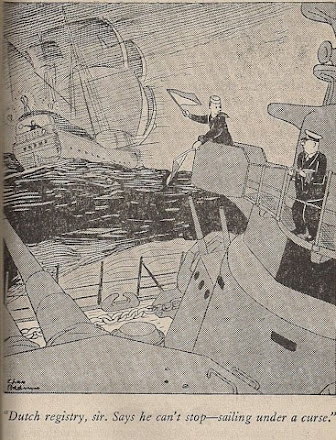The
doughty Dutch who challenged the might of the British Navy during the 17th
century, even though they failed to vanquish the Anglo armada, have left their
mark on the legends of the sea.
In many a
sea yarn and expression, varied usages of the term “Dutch” crop up. Most
renowned perhaps, the “Flying Dutchman.” This was the ship of the legendary
Dutch sea captain, Van der Decken, who was condemned for impiety to cruise
forever off the Cape of Good Hope. For a long time, it was considered a bad omen to see the “Flying Dutchman.” Superstitious seamen were often
reporting her. Today a “Flying Dutchman” is a person dogged by bad luck.
The “Dutchman
log” is a crude expedient used in small and slow vessels for measuring speed. “Dutch
courage” has come to mean liquor-inspired bravery. This comes from the fact
that sailors believed gin was served out in the Dutch Navy before a battle.
A “Dutchman’s
anchor” refers to something important that has been forgotten or left behind.
It’s probably from the old jest about a Dutch shipmaster who had forgotten to
bring his anchor along, and so lost his ship. The “Dutchman’s breeches” is a
small patch of sky at the end of a storm – “a patch big enough to make a
Dutchman a pair of breeches.”
An old
punishment that consisted of pumping under conditions where drowning would
follow cessation of work was carried out on a “Dutch pump.”
And “if
that don’t beat the Dutch” comes from the early day British-Dutch sea battles
where the English sailors found the Hollanders unexpectedly challenging in battle.
(
FiN )


No comments:
Post a Comment